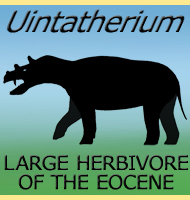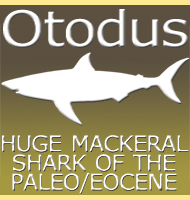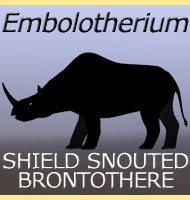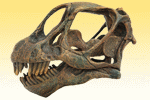


Cynodictis
Name:
Cynodictis
(in-bertween dog).
Phonetic: Sy-noe-dik-tis.
Named By: Bravard and Pomel - 1850.
Classification: Chordata, Mammalia, Carnivora,
Amphicyonidae, Arctoidea.
Species: C. elegans (type), C.
cayluxensis, crassus, C. exilis, C. ferox, C. lacustris, C.
longirostris, C. parisiensis, C. peignei.
Diet: Carnivore.
Size: About 30 centimetres high at the shoulder.
Known locations: Eurasia.
Time period: Priabonian of the Eocene to the
Rupelian of the Oligocene.
Fossil representation: Many Specimens.
Cynodictis
was an early member of the Amphicyonidae,
a group of mammalian
predators that are much better known as ‘bear dogs’. This is not
all that surprising however when you consider that Cynodictis
was also
one of the earliest amphicyonids and usually the earlier members of a
group are smaller than the later members which have had more time to
adapt to their methods of killing. The main reason why Cynodictis
was
so much smaller than later amphicyonids like Amphicyon
was because it
was living at a time when the dominant predators were larger creodont
mammals such as Hyaenodon
and Sakastodon.
Because
of its small size Cynodictis would have had to
specialise in hunting
creatures that were further down the food chain such as rodents and
lizards. Scavenging the kills of the larger creodonts would have also
been an option, but only when the larger predators had left the
carcass. Cynodictis has been noted by many to
have powerful
forequarters which have led to some suggesting that it may have been a
digger. This could have involved Cynodictis
digging dens where it
could shelter from other predators, or digging for burrowing animals.
Cynodictis
was once considered to be the ancestor of modern dogs, however new
fossil discoveries have confirmed that this is actually not the case at
all.
Further reading
- Description of a new species of Cynodictis
Bravard & Pomel,
1850 (Carnivora, Mammalia) from the Quercy Phosphorites with comments
on the use of skull morphology for phylogenetics. - Geodiversitas
42(16):239-255. - K. Le Verger, F. Sol� & S. Ladev�ze - 2020.
----------------------------------------------------------------------------
Random favourites
 |
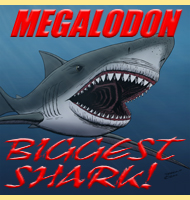 |
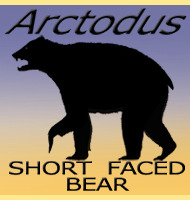 |
 |

